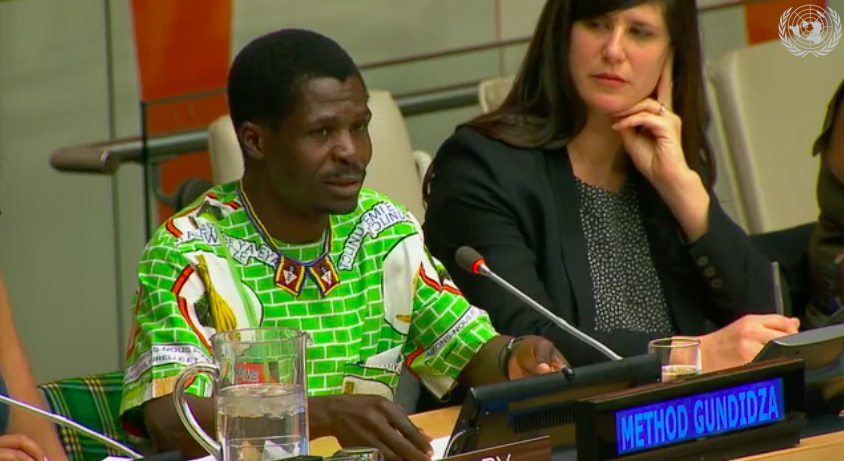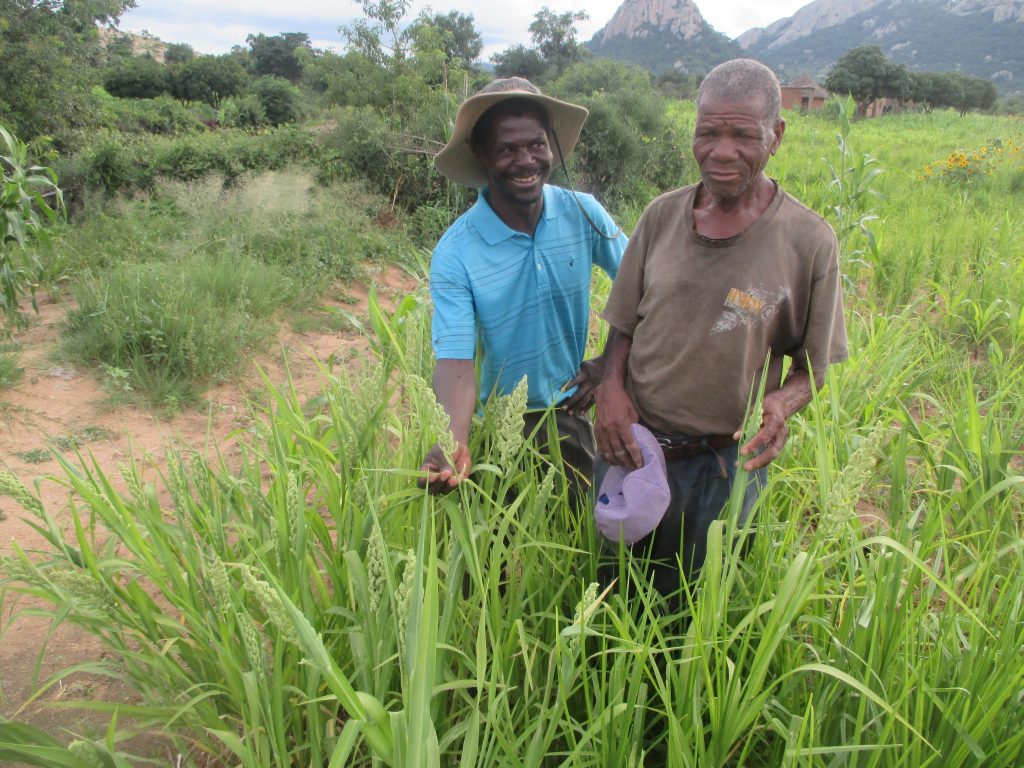“When humans arrived, the sun and the moon did not stop rising and setting; the air, water and the Earth did not stop moving either and neither did the plants and the animals. Such is the order which humans found.”
Late last month Method Gundidza, a graduate of Gaia’s transformational trainings for African Earth Jurisprudence practitioners, began his moving contribution to members of the UN General Assembly with these words.

Method was speaking as a panellist at the 8th Interactive Dialogue of the UN General Assembly on Harmony with Nature – held on 23rd April 2018. The focus of this meeting was on how Earth-centred law and ecological economics can help us transform our current production and consumption patterns.
This question holds vital significance. Promises of ‘green’ and ‘sustainable’ growth have gained traction in policy and corporate circles worldwide, popularising the idea that, through economic efficiencies and miracles of technology, we can grow production, consumption and GDP without limit.
According to this story, we can have our cake and eat it. We need not challenge overconsumption, question inequality or reimagine our relationship with Earth, our only home. We just need to tweak the current system, trusting in the industries and institutions that have brought us to the brink to help us step back from it.
Telling the story of his work in is home community of Bikita in rural Zimbabwe, Method challenged these ideas, bringing the voice of a growing African Earth Jurisprudence movement to the UN to tell a very different story.
By reviving their traditions, and in particular communal practices for the cultivation of millet, a sacred seed, the people of Bikita have begun “Reweaving the basket of Life”. As Bikitans have restored their indigenous knowledge and practices, reciprocity, rather than growth or extraction, has re-emerged at the heart of relations between people and more-than-human Nature.
Watch Method’s speech at the UN Harmony With Nature Dialogue, or read a transcript of his contributions here, to hear the full story of revival in Bikita.
Back to Roots
Method’s own story reflects a renunciation of deeply rooted stories driving the industrial growth economy, urging us to pursue ‘bigger, better, more’, in favour of a life-sustaining ethic of living well within the boundaries of our planet, beautiful in its finitude.
Having grown up in Bikita himself, in 2008 Method moved to South Africa to pursue a career in corporate finance. Since then, however, Method’s involvement with Gaia’s South African partners the EarthLore Foundation, an organisation committed to accompanying communities to revive their traditional ecological knowledge and practices, has taken him down a different path.
Having taken part in his first retreat as part of a three-year Earth Jurisprudence training, facilitated by Gaia, Method decided to quit accounting. He began a journey back to his roots, learning from his elders in Bikita, encouraging the custodians of sacred natural sites to revive them and the required rituals, and supporting the mainly women farmers, to become seed and food sovereign.
Together they saw how the revival of sacred millet led to the strengthening of relationships within the community, as well as with the sacred sites which require millet for rituals. The revival process, discussed by Method in a recent interview, has affirmed for the community that they have the deep knowledge to live well in supportive, caring communities, to sustain a mutually enhancing relationship with their ancestral land, and to navigate climate change and other pressures.
“When we listen with a feeling for the interconnected web of life we are part of – we can hear how knowledgeable elders do not see farming as an end in itself,” says Method.
“For them farming requires a holistic understanding of the ecosystem, the climate, the constellations, the moon cycle and a deep capacity to read the whole interrelated system. It is not about maximizing our capacity to extract food from the Earth and get rid of any species that interferes with our single ambition. It is about participating with humility in the dance of life; working in harmony with Nature.”
A growing movement
One of Africa’s first Earth Jurisprudence practitioners, in 2017 Method successfully completed a 3-year experiential training course in the principles and practice of Earth Jurisprudence.

Method (front row, 4th from R) with his fellow EJ practitioners and elders from the Maasai, Tharaka and Kikuyu Peoples.
Working together, the graduates from this course are strengthening the movement for Earth Jurisprudence in Africa; accompanying community-led revival processes connecting across the region; responding to the growing interest in Earth Jurisprudence and indigenous knowledge, and working with communities to establish vital Earth-law precedents.
In summer 2017, practitioners from 7 African nations, together with Gaia and the African Biodiversity Network, played a central role in successfully lobbying the African Commission to pass a new, decolonising resolution recognising the connection between the health of sacred natural sites and the realisation of Indigenous Peoples’ rights.
These practitioners are now mentoring a second group of trainees undertaking the UN-recognised EJ course developed by Gaia.
For full coverage of the United Nations Interactive Dialogue on Harmony with Nature, see:
- (Part 1) Interactive Dialogue on Harmony with Nature during the commemoration of International Mother Earth Day – General Assembly, 72nd session
- (Part 2) Interactive Dialogue on Harmony with Nature during the commemoration of International Mother Earth Day – General Assembly, 72nd session

